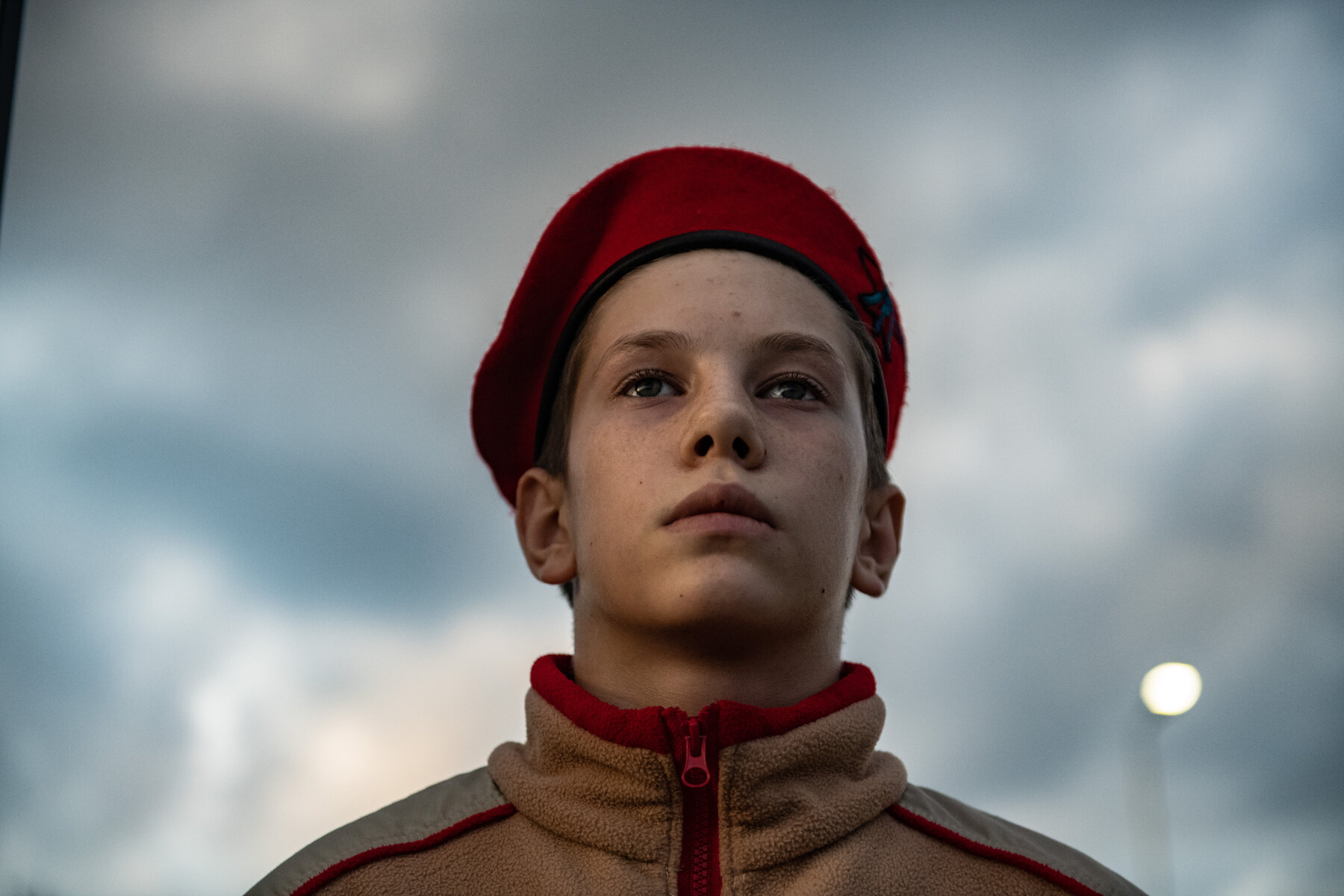Reaping what we sow: raising a militarized patriot in today’s Russia
In the former USSR, patriotism and military education were an indispensable part of teaching at all levels, from public schools to compulsory army service. However, since the image of the enemy to be confronted often remained abstract, young people tended to see military service as an opportunity to make friends and prove themselves. In today's Russia, on the other hand, schools and the army are used as a kind of "factory for human material" which must fulfil Putin's geopolitical interests.
Text: Alaiza Pashkevich, Ben Sherman
Images: Ben Sherman and interviewees’ private archives
The opinions of the Russian men were collected by Ben Sherman as a part of his research on masculinity in Soviet and post-Soviet Russia.
Analytical work and translation: Alaiza Pashkevich
Following the collapse of the Soviet Union in 1991, the ideological component of school and university curricula predictably changed. Stalin’s glorification came to an end and each ex-Soviet republic was free to fill in the newly formed gaps with its own content.
However, with Vladimir Putin coming to power in 2000, patriotic education was gradually reintroduced. This does not mean, however, that patriotism of the former communist regime is comparable to that of present-day Russia. In his speeches held on different formal occasions, Putin repeatedly raises the issue of patriotism, calling it “sacred”1 and describing it as “the core foundation of Russian statehood”2 and “the essence of Russians’ nature and character”3. Quite surprising for a secular society with a long history of atheism is also the President’s desire to form a firm connection between a Russian patriot, state, and church. In 2020, for example, Putin proposed several amendments to the Constitution where this intention was more than obvious. “The Russian Federation, united by a thousand-year history, preserving the memory of our ancestors who passed on to us the ideals and faith in God, as well as the continuity of the development of the Russian state, recognizes the historically established state unity,” – quotes4 one of the amendments Vyacheslav Volodin, the speaker of the State Duma [one of the chambers of the parliament].
But patriotism now permeates not only school curricula. Literally aimed at inculcating a positive attitude to the war with Ukraine (officially positioned as “special military operation” aimed at demilitarisation of Ukrainian5) and feeding their pride of Russia, in 2022 a “music patriotic marathon “Za Россию” (For Russia) toured around the country with shows in 31 cities that cost the federal budget 95.3 million Roubles (about 981K Euro).6 And its ambitious purposes seem to be achieved: an increasing number of soldiers are serving the state, for whom the interests of Putin's political elite are more important than their own lives. According to estimates, nearly 50,000 Russian soldiers have died in the Ukraine war since 2022.7
How was a patriot educated in the Soviet military system and what steps is Putin's regime now undertaking to raise a new generation of patriotically minded young people? How did this change occur? Answers were given by witnesses and their visual archives.
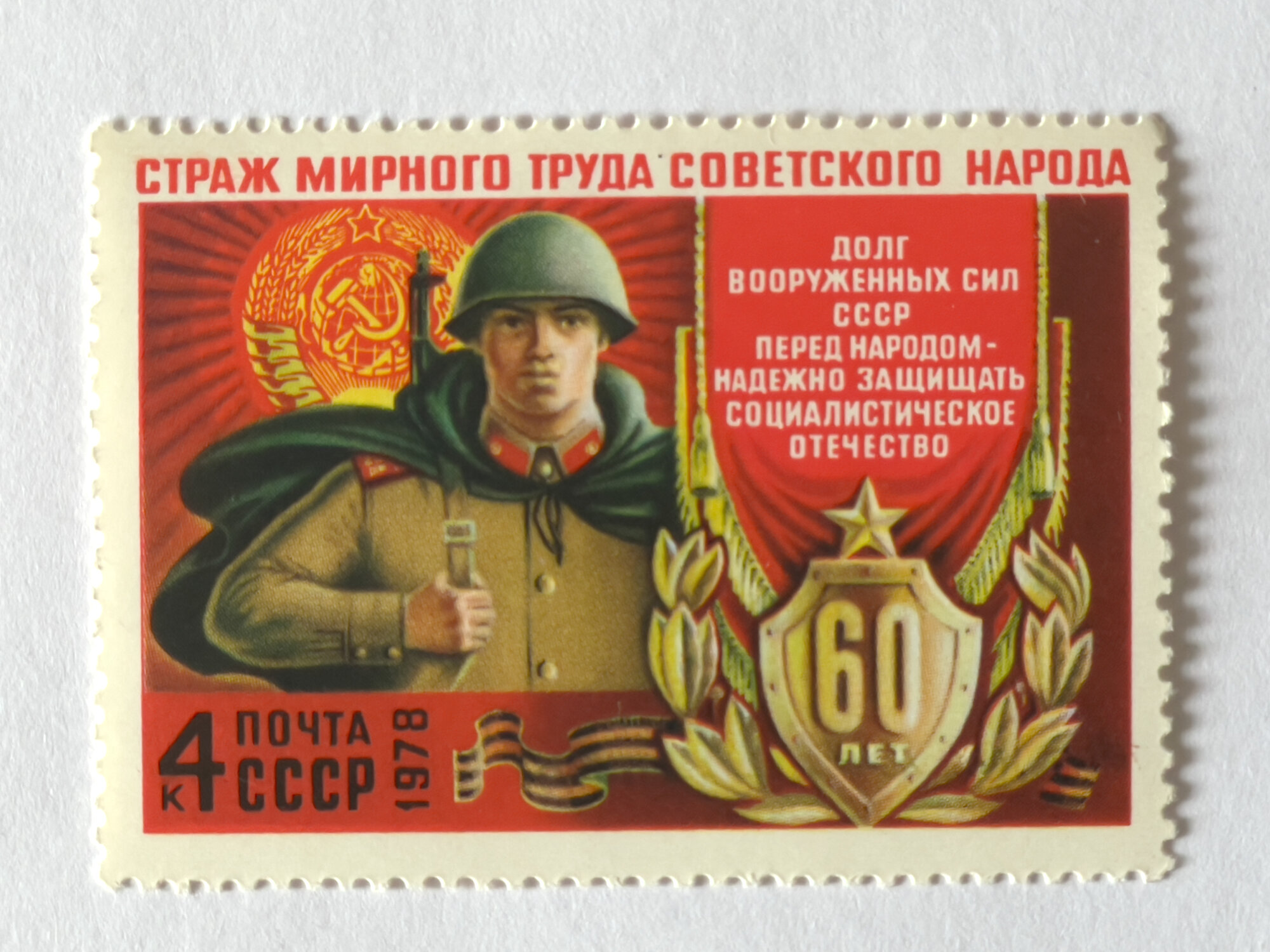
Dmitry, 51, who served in the Marine Corps from 1990 to 1992, is sure that the Soviet Army was about confidence built in everyday situations as young men in the Army learned what each of them was capable of.
"In Soviet times, fathers, children and even grandfathers (in their childhood) all read the same books. Reading was among the most popular hobbies. Books featured real heroes, often related to the world of the military: from Arkady Gaidar's "Timur and His Squad" to Boris Polevoi's "The Story about a Real Man". So, many young men served in the army because military education influenced boys from childhood. Friendships which started in the army were cultivated and lasted after the end of military service into civilian life."
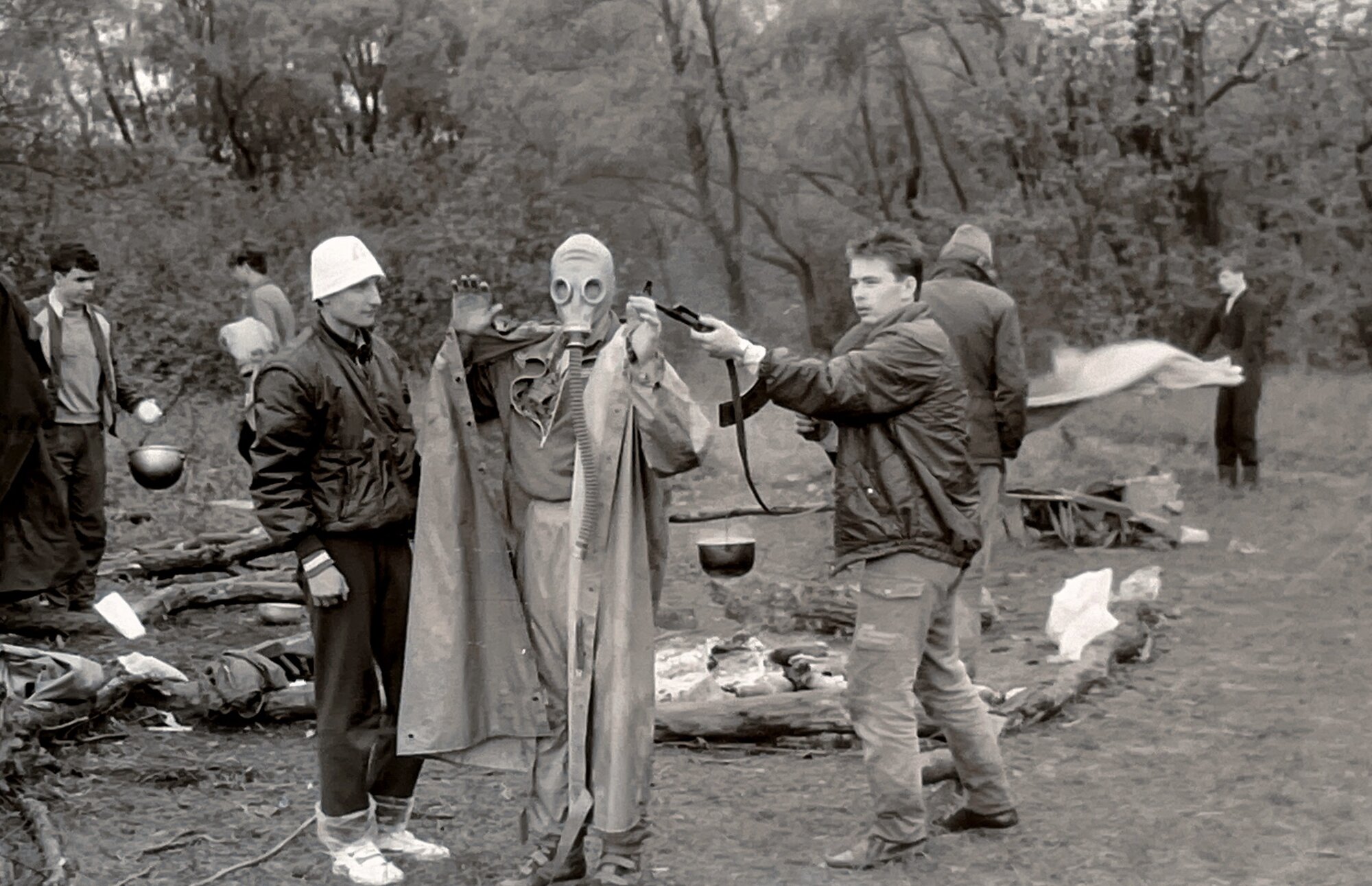
The USSR curriculum included a programme which prepared pupils for military service. As from ninth grade, two-hour lessons taught by retired officers were held weekly, in which pupils learned to handle weapons and gas masks and administer first aid. In some schools, shooting ranges were set up where pupils learned to shoot small-bore rifles. In many schools, there was an obstacle course; in physical education classes, pupils were taught to throw a hand grenade: "… part of the fitness test which everyone had to pass," recalls Alexey, 52, who served as a border guard in Sochi from 1991 to 1993.
"The army was considered an important stage in a young man's life which would make him grow up. A sort of initiation. Moreover, it was a matter of pride, because there they were declared future defenders of the fatherland. Conscripts often received letters from girls who were waiting for their return from the army. Patriotic education was present at all levels of the social system: in kindergarten, school, vocational school or university, in the army, trade unions or regional, district and city committees. And there was no question of whether one wanted to serve in the army or not: those who did not were seen as sick or stupid,” Alexey adds.
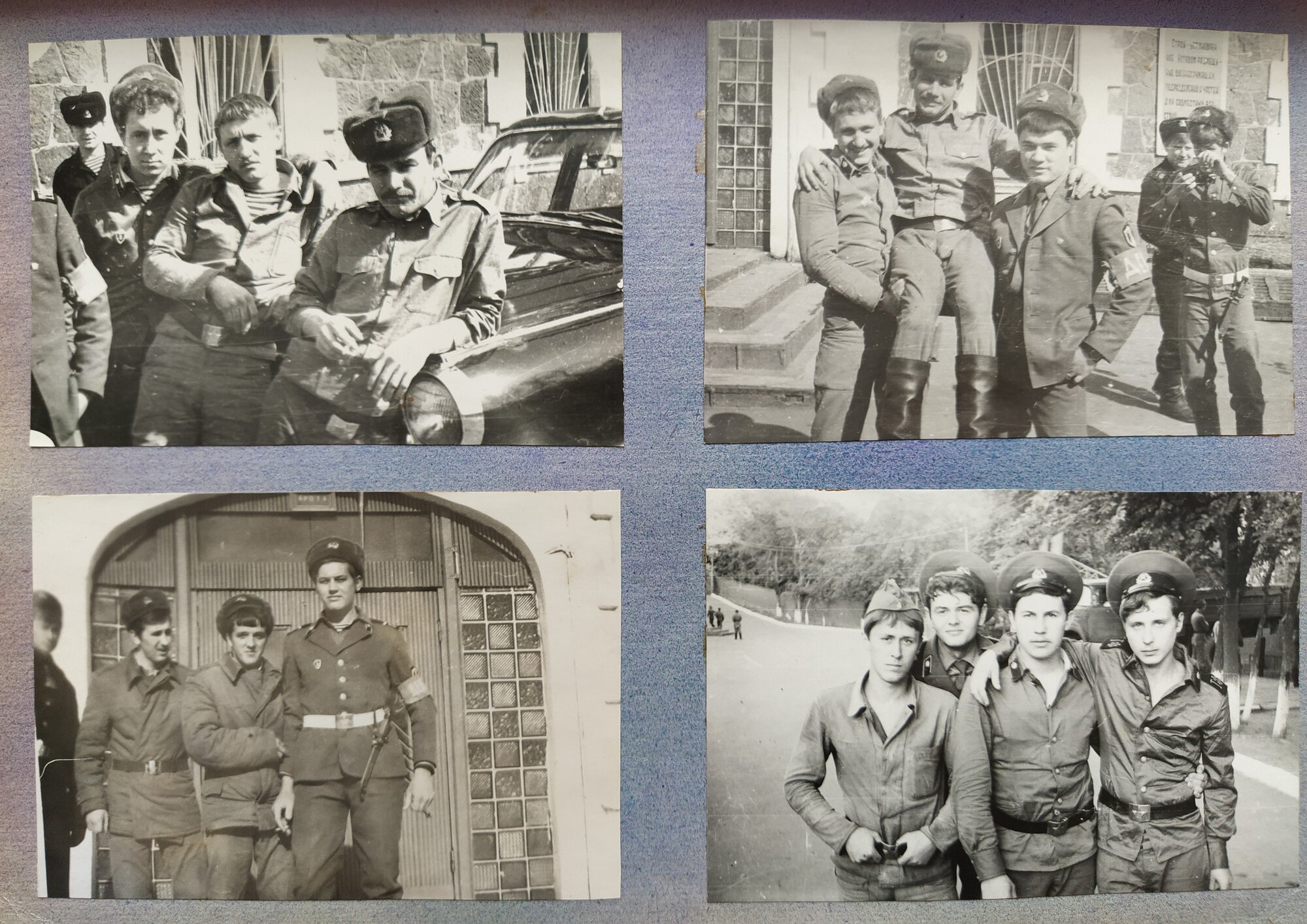
Demobilisation albums (widely known as "dembel albums") were a part of the Soviet army conscripts’ subculture which emerged around the 1950s, when photography technology was still complex and hardly accessible. The albums looked like neatly crafted scrapbooks with snapshots, magazine and newspaper clippings, artwork, texts, poems, and other memoir-styled materials made in the final months of military service.
"The army especially valued people who could make life more interesting and useful: musicians, athletes, artists, and experts in various disciplines. It also allowed us to collect photos and stories which we wanted to remember. Therefore, in the last six months, each of us began to create a demobilisation album. It helped maintain the army brotherhood in civilian life. A man could have army friends anywhere in the Soviet Union," recalls Dmitry.
As a friendship token and the archive of collective "old boys’" memories, such albums lasted until the late 1990s and practically ceased to exist as a phenomenon with the rise of the Internet and social networks.
Alexander, 48, who served as a signalman in the city of Novoaltaisk from 1994 to 1996, adds, "Army albums were meant to boost our self-esteem. It was a kind of graduation certificate, showing that you had gone through "a school of courage". Now, such albums have lost their point because courage is not in trend any longer. Well, from a purely technical perspective, physical photography has lost its value in the era of smartphones."
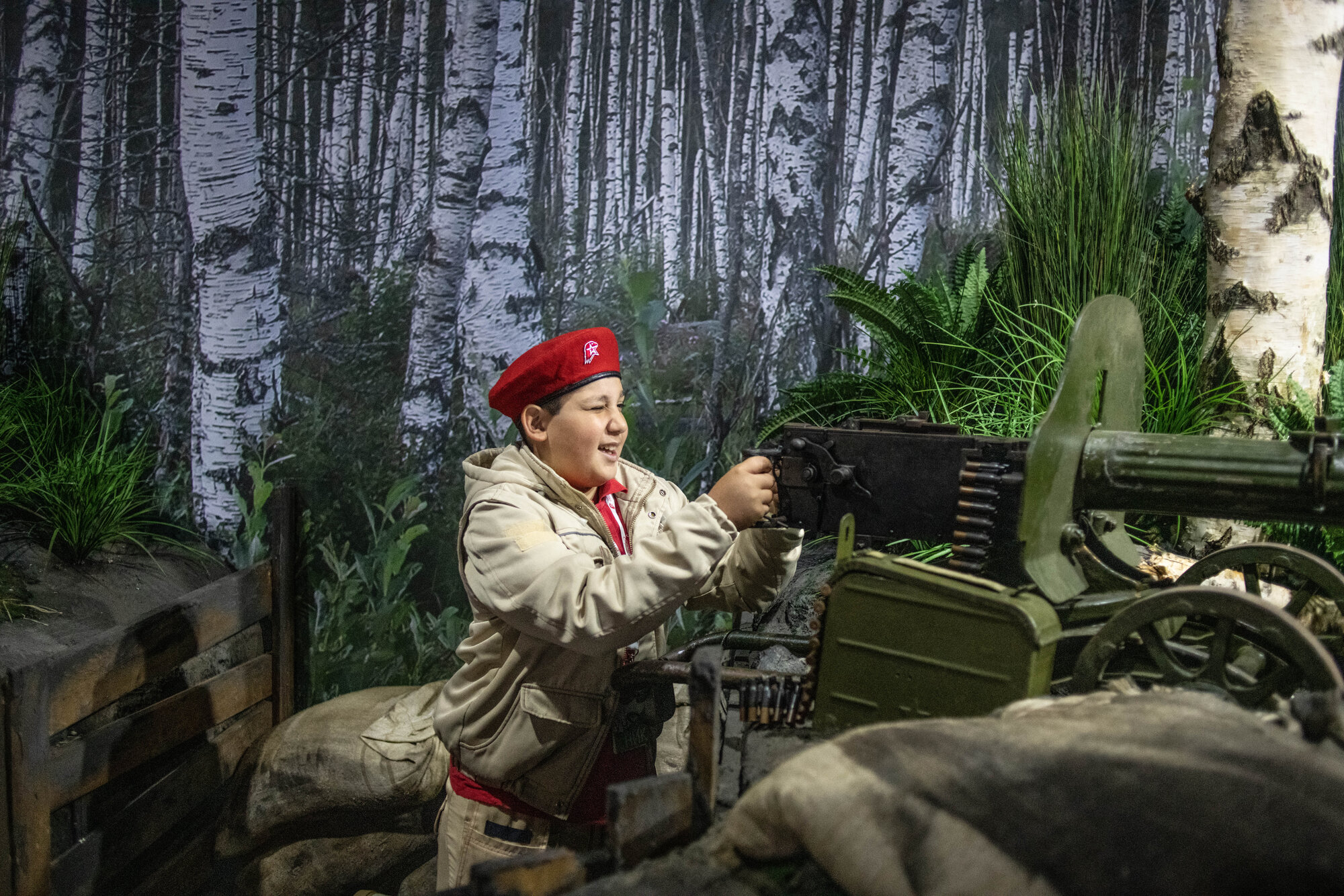
Established in October 2015, the all-Russian "Young Army" National Military Patriotic Social Movement Association (or "Yunarmiya") is a youth organisation created on the initiative of the Russian Minister of Defence, Sergei Shoigu. It is funded by the Russian government and aims to train personnel for uniformed services by instilling patriotic feelings about national and military history and memories of past military campaigns. "Yunarmiya" numbers more than one million boys and girls and claims to be the largest military-patriotic youth organisation in the world.
"Despite the strong Soviet ideology, I don't remember the word "patriotism" coming up much in my school days," recalls Valery, 50, who served in the air force in Belarus in the 1990s. "The slogans mostly revolved around concepts such as peace, labour, equality, and solidarity of all Soviet peoples and states. Of course, we were taught to fight for our homeland, but the enemy was never real. Instead, it took the form of abstract threats depicted in absurd cartoons. In today's Russia, the situation is completely different."
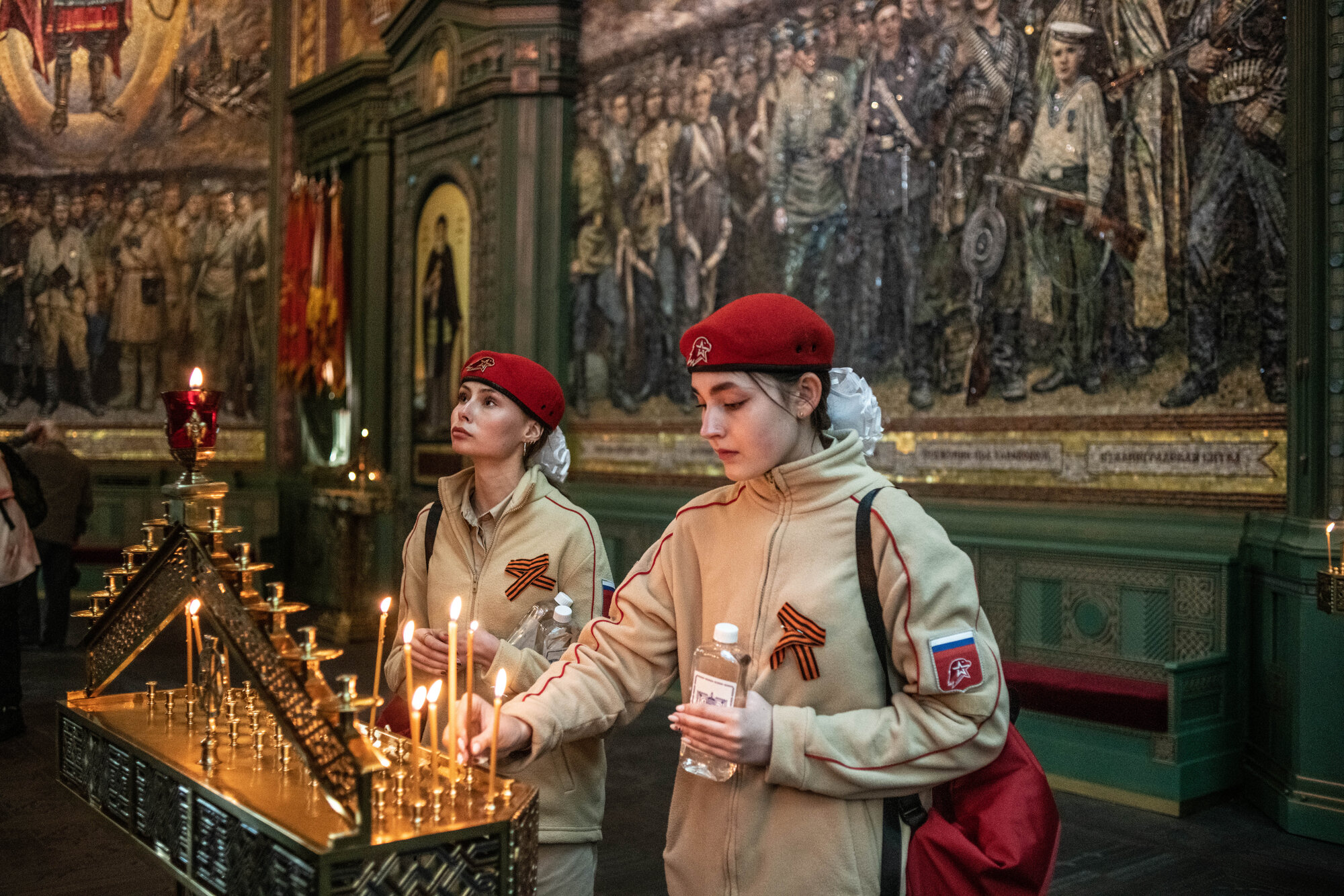
"The course on the Basics of Security and Motherland Defence is being introduced in schools. It looks like its Soviet predecessor, which once was called Soviet Initial Military Training, but is now more "advanced" – brought to a new technological and ideological level. The state allocates a huge budget for the establishment of youth military-patriotic clubs and tries to make the military profession the most prestigious,” adds Valery, 50. “There are several explanations for these steps. First of all, such manipulations are designed for the purpose of providing low-income social strata with a kind of "ticket to life". Secondly, by bringing up patriotically minded young people, the state makes sure it is easy to control them. A dedicated patriot makes a perfect soldier. And the discourse is no longer on an invisible enemy. The abstract has become quite definite. Deaths are quite real, but are they really as heroic as Russian propaganda is trying to persuade its people?"
With the rise of Putin, the Russian Orthodox Church began to play an important role in state propaganda. It was used to make associations between the "strong hand" of state leadership and God, both demanding a willingness to sacrifice life for the common good.
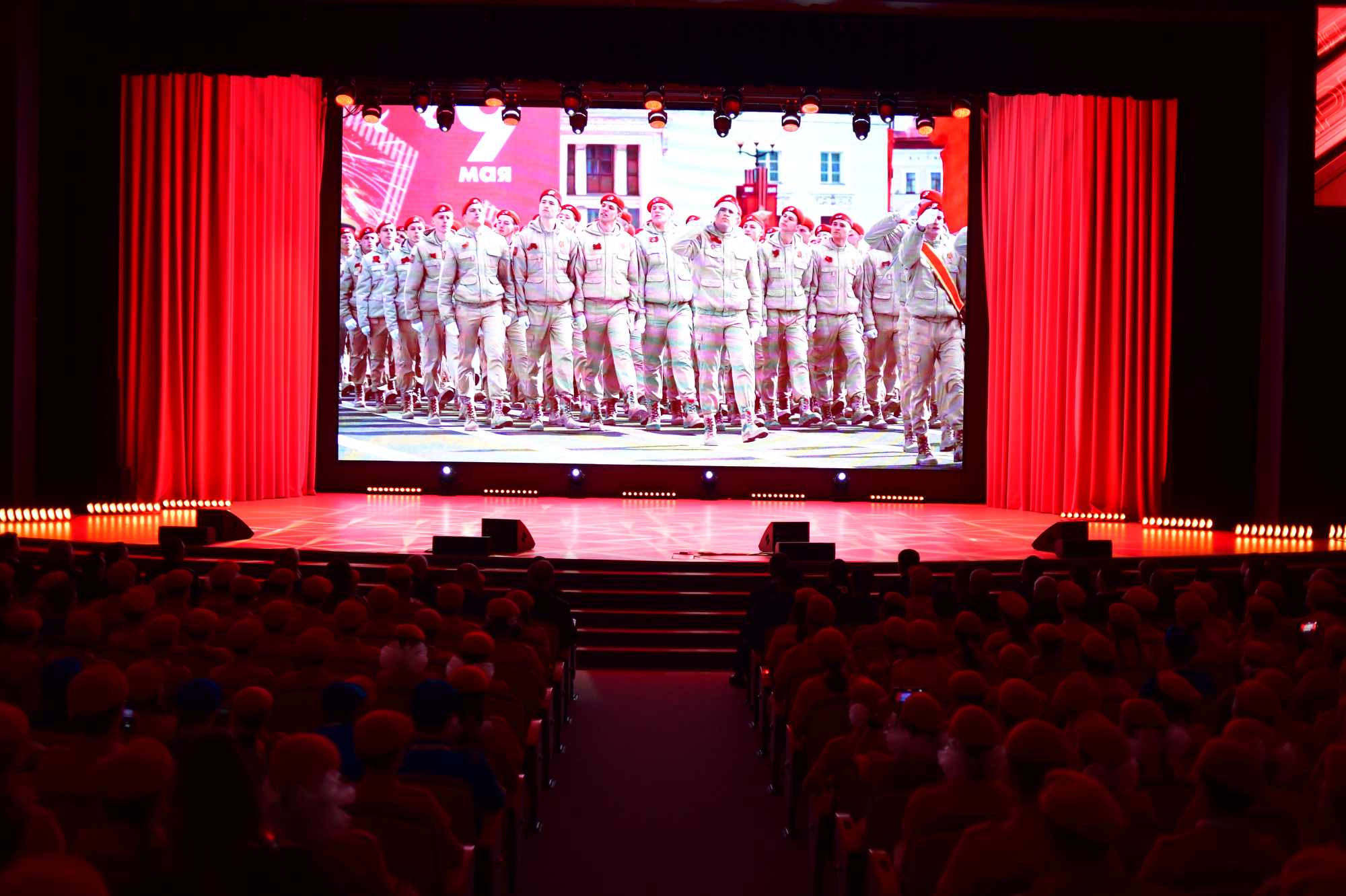
The establishment of military-patriotic movements was not the only step taken by Putin’s regime to instil loyalty in the state and promote patriotism. Politics gradually came to permeate all forms of public life, becoming specifically focused on the educational sphere. "Since 24 February 2022, the entire educational system and academic practice in general have found themselves in an unprecedented situation," concludes Alexander, 43. Working for two decades in one of Moscow’s universities, he has first-hand experience of observing patriotic propaganda in practice.
"When the war began, meetings of the pedagogical staff were held at all universities and schools, in which the administration was trying to formulate a further strategy. However, it soon became clear that "the special operation" would not end in either three days or three months, so longer-term decisions were needed. In the meantime, there were two ways to make a political statement on campus: either agree with the official position or remain silent. At a number of departments, including the School of Journalism, students and faculty were strongly discouraged from talking about the "current agenda". Very gradually, a basic trust was disappearing. Lecturers and students are denouncing each other, people are arrested, intellectuals are suspected of being "agents for foreign countries". What awaits young generations of Russians in future?" Alexander comments.
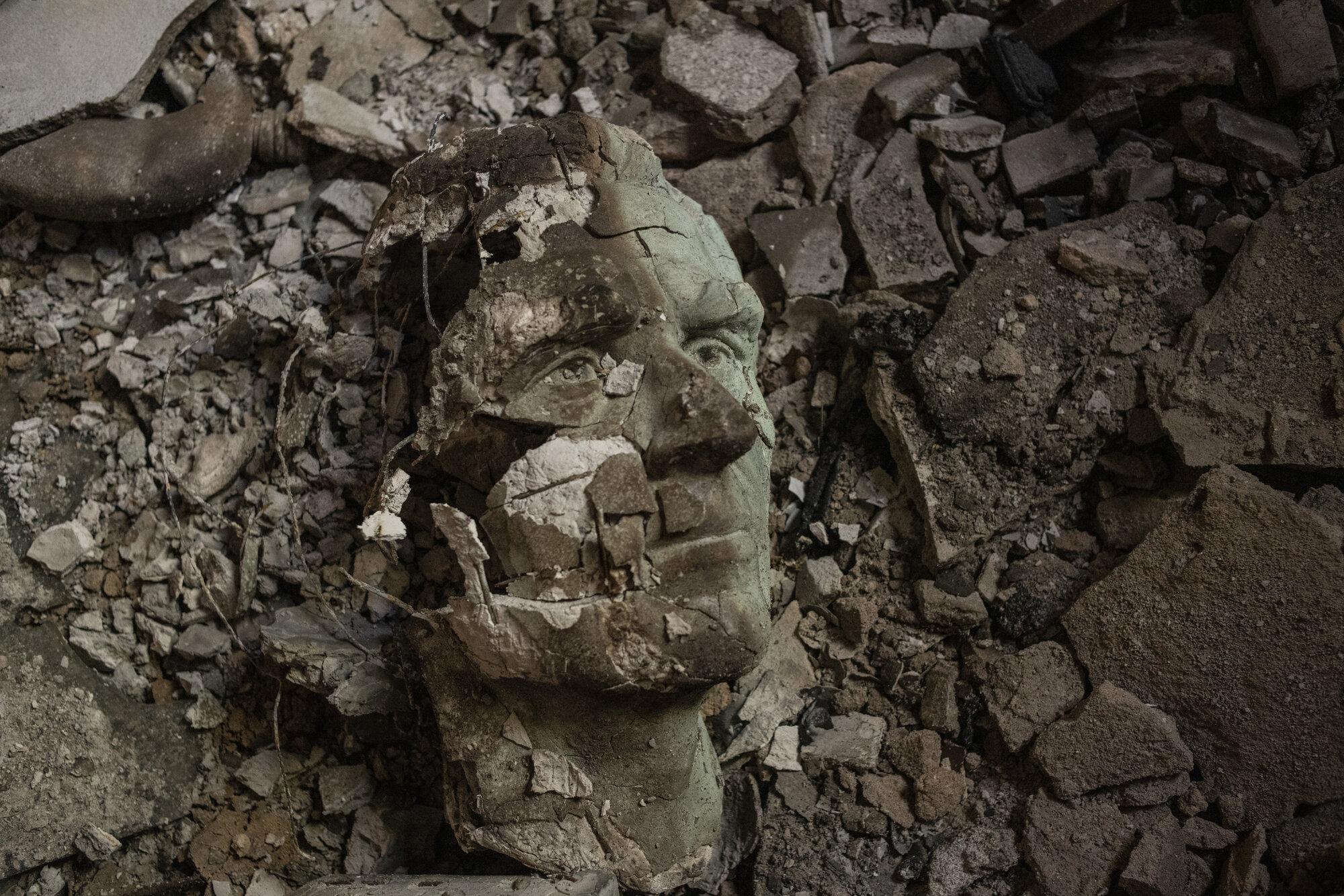
It looks as if Putin's ideological team has inherited the experience of military-patriotic indoctrination from the country's Soviet past. However, the methods chosen to entrench the totalitarian regime are becoming more "original" and – in this atmosphere of compromised critical thinking and low cultural level – more dangerous.
For example, a new compulsory course called "Fundamentals of Russian Statehood" was introduced at all universities, consisting of five blocks: individual, family, society, state, and country, thus covering all the basic levels of human life.
In April 20, Putin commented on another "creative" idea of his, saying that "starting from school, pupils could learn to operate, assemble and design drones. I am sure that, firstly, this will engage them in useful and interesting work, distracting them from what they should not be doing; secondly, the entire country will eventually benefit from this so-called "early career guidance".
1 – Izvestija. The power of unity: Putin explained the importance of patriotism for the Russians. Путин объяснил важность партиотизма для россиян. June 12, 2023 https://iz.ru/1527211/valeriia-shiriaeva/sila-edineniia-putin-obiasnil-vazhnost-patriotizma-dlia-rossiian
2 – Lenta.ru. Putin named the core foundation of Russian statehood. Путин назвал ключевую основу государственности России. April 27, 2022 https://lenta.ru/news/2022/04/27/patriotism/
3 – RIA Nososti. Putin called patriotism the essence of the Russian people’s nature. Путин назвал патриотизм сутью природы российского народа. Sept. 21, 2022. https://ria.ru/20220921/patriotizm-1818503913.html
4 – Deutsche Welle. Putin amended the Constitution to mention God and marriage. Путин внес поправки в конституцию с упоминанием бога и брака. March, 2 2020 Путин внес поправки в конституцию с упоминанием бога и брака – DW – 02.03.2020
5 - Andrew Osborn and Polina Nikolskaya, Russia's Putin authorises 'special military operation' against Ukraine. REUTERS. February 24. 2022 https://www.reuters.com/world/europe/russias-putin-authorises-military-operations-donbass-domestic-media-2022-02-24/
6 – The marathon “For Russia” cost almost 100 million rubles from the budget. It was organized by an expert institute, far from show business, but close to the Kremlin. The main thing from the investigation of the BBC Russian Service. Марафон «Zа Россию» обошелся почти в 100 миллионов рублей из бюджета. Его организовал экспертный институт, далекий от шоу-бизнеса, но близкий к Кремлю Главное из расследования «Русской службы Би-би-си» May 11, 2020 https://meduza.io/feature/2022/05/11/marafon-za-rossiyu-oboshelsya-pochti-v-100-millionov-rubley-iz-byudzheta-ego-organizoval-ekspertnyy-institut-dalekiy-ot-shou-biznesa-no-blizkiy-k-kremlyu
7 – NPR. How many Russians have died in Ukraine? New data estimated soldier casualties. July 14, 2023
8 – TASS. Putin proposed to start teaching at school to fly drones . Путин предложил со школ начинать учить управлению дронами. April 27, 2023 https://tass.ru/obschestvo/17633137


